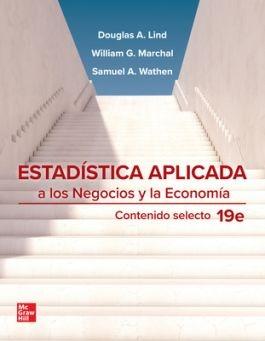Mathematics for Economics "An Integrated Approach"

 (0 Comentarios)
(0 Comentarios)
Comenta y valora este libro
pvp.47,00 €
Sin Stock. Posibilidad entre 11 y 20 dias
- ISBN:9780230278929
- Editorial: Palgrave
- Fecha de la edición:2012
- Número de la edición: 3
- Encuadernación:
- Nº Pág.:544
- Idiomas:Ingles
Materias:
Otros libros de Wisniewski, Mik
-
pvp.47,00 €
-
Wisniewski, Mik
Quantitative Methods For Decision Makers With Mymathlab Global
Prentice-Hall International Ed. 2010

pvp.58,19 €
Otros libros de Economía Cuantitativa
-
Cuevas Romo, Ana; Hernandez Sampieri, R.; Méndez Valencia, Sergio; Mendoza Torres, Christian Paulina
Fundamentos de investigación
Mcgraw-Hill Interamericana de España. 2025

pvp.32,00 €
-
Álvarez López, Roxana; Balmori De La Miyar, Jose; Bohon Devars, José Antonio; Domínguez De La Cruz, Salomón
Matemáticas para negocios
Mcgraw-Hill Interamericana de España. 2025

pvp.60,00 €
-
Lind, Douglas; Marchal, William; Wathen, Samuel
Estadística aplicada a los negocios y la economía "Contenido selecto"
Mcgraw-Hill Interamericana de España. 2025

pvp.61,70 €





